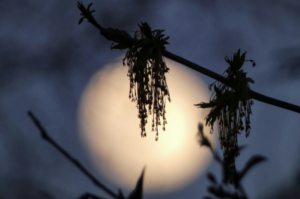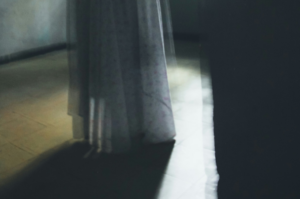I’ve always been uneasy about Unoka’s death. Unoka is the father of Okonkwo, the principal character in Achebe’s 1958 classic, Things Fall Apart. He is thought to be a lazy man because he loved making music instead of farming yams. He falls ill with a wasting disease. One day, he is taken out of his own home and abandoned in the forest to die. The narrator gives away very little about the reason for this act of legal violence against Unoka. All we are told is that his swelling body is an abomination against the Earth Goddess.
I have now read Things Fall Apart more times than I can count. But with each repeated reading, it has become more difficult to accept his death as a matter of fact. I’ve always imagined that if I were to meet Unoka, I’d ask him these sort of questions.
***
I would tell him: Was it lonely being different from everyone else? Was it saddening knowing your family thought very little of you, that your son could not bear the thought of you?
What was your crime, really? That you loved singing, and dancing and playing the flute? That you loved to watch the birds returning for the dry season and the songs children sang to welcome them? That you loved these things more than you loved farm work? Sad because if you lived in our present world, you’d have been called an artist. What did it feel like to have been born a century before your time, to be so misunderstood that you are thrown into the forest—discarded—like trash?
Were you frightened the day they came for you? When they yanked your sore and swollen limbs, did it hurt? Did you plead with them to let you die, no matter how wretched the death, in your own house? Were your children watching as they heaved you on their backs? Did you catch a glimpse of Okonkwo’s eyes? Did you see in his eyes a mix of shame and gratitude that you had finally disappeared from his life? You lost everything—your home, your family, your clan. You lost everything except for your flute which they said you took with you. Why did you take it with you?
When you lay there under a tree in the horrid darkness of the evil forest, were you scared? Did you see others like yourself or perhaps their decaying carcass and weather beaten bones? No matter how hard I try, I can’t quite imagine how horrid a place the evil forest must have been.
Did you think to play the flute to soothe your broken heart, to scare of evil spirits, or to mourn others like yourself?
How did you eventually die? Where you torn limb from limb by a wild animal? Was it hunger and thirst that finished you off?
The evil forest isn’t always too far from the roads leading to the farms. Did you sometimes hear your neighbors passing by on their way to their farms? People who came to your wedding, who came to celebrate the birth of your first child, who danced with you in festivals. Do you hold it against them for looking on as you were dragged out of your home and left to die a death too lonely and too painful to imagine?
They said your body had to be taken out of the clan because it was an abomination to the Earth Goddess. Who the hell is this Earth Goddess anyway? And why did she authorize your death?
If you were such an abomination, they should have killed you. But of course, it is not just your death that they wanted. Your death would not be perfect if you didn’t suffer.
But sometimes, I imagine you didn’t die at all. When I listen hard enough, I hear you playing the flute with your dying breath. Just when you thought it was all over, a spirit-maiden appears. She’s drawn by the sound of your music, and she saves you. She rescues from the death and the darkness and the loneliness of the forest.
***
The image is by Nigerian photographer Kadara Enyeasi via African Digital Arts. Check out more photos HERE.










Tonye Willie-Pepple June 19, 2014 07:27
This is a very interesting aspect of the character Unoka, it could make for a good staged play if well scripted, wow, Art really is interesting,Whenever reading Things Fall Apart, I get to Unoka and pause, because I see right from the on set that he is an artist, like a comment here read, if he lived in our days he would probably have been a very celebrated artist. I think Chinua Achebe (God bless his soul) balanced the fact that Unoka's love for nature was not all together bad when in later chapters we find his Grandson falling in love with songs and stories of the Missionaries, which really was what drew him to them, and in one of his later books he presents us with the great grandson of Unoka, through Nwoye (who turns a cathecist and educationist) becoming the first Umuofia man to be educated abroad and all. His depiction of Unoka as a good for nothing sadly was the only interpretation the people of the time could give for such a person as he, I am sure there were others who were artist but hid that part of them and subdued it with farm work, That said, there was also the less affair lifestyle which Unoka had about things which was certainly not good, For instance when his creditors came to demand their pay, and he laughed pointing to chalk drawn lines for which he used to illustrate how people he owed bigger amounts had not come to disturb his sleep, an artist should also be serious minded and dedicated to work, thankfully these days art in various forms with dedication and hardwork is fast becoming a means to livelihood and survival. Again this was very very interesting.